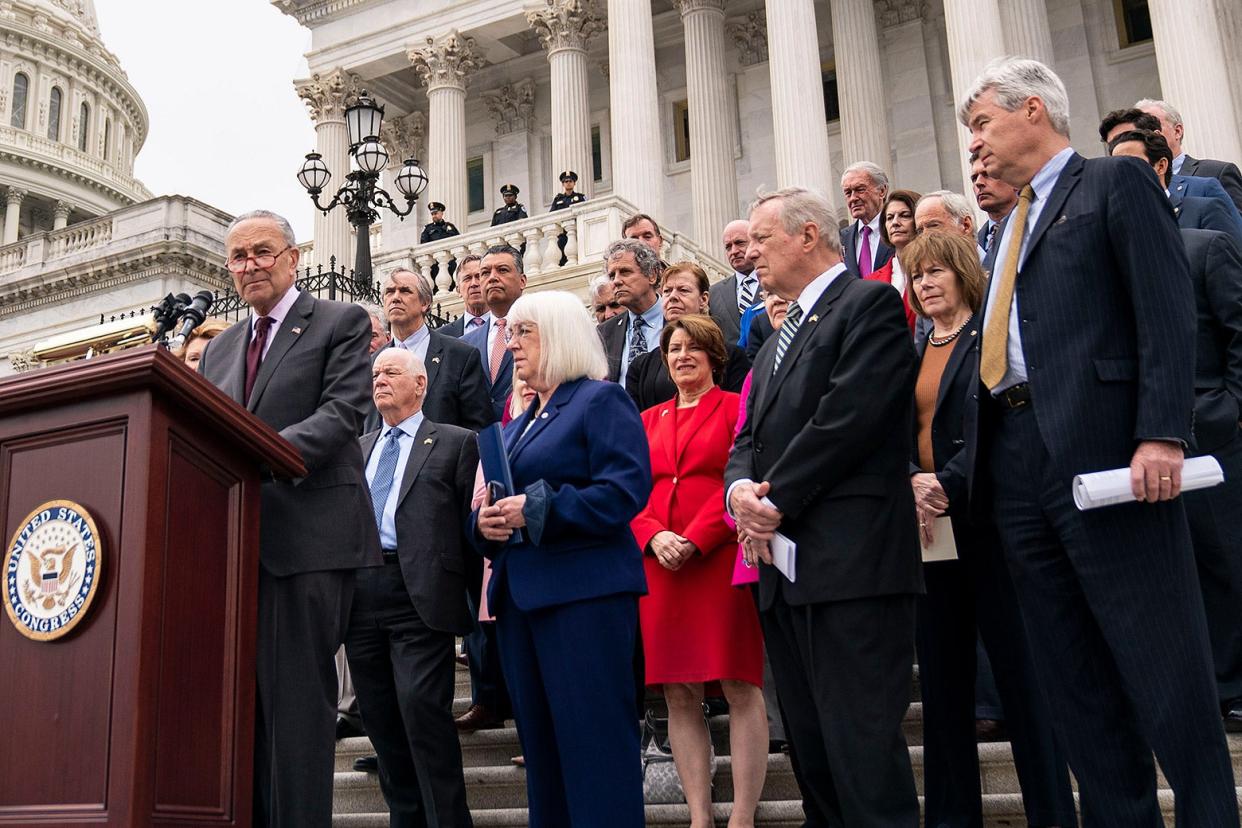The Easiest Way for Congress to Rein in the Supreme Court

Most observers know that the Supreme Court hears the opening oral arguments of each term early in October. Fewer know about the long conference held in September, when the justices vote on more than 1,000 petitions to hear cases. The justices choose which cases they hear, and what they pick relies on recommendations from law clerks—lawyers paid for by Congress and hand-picked by the justices.
If the upcoming term continues a trend, more than a few cases will further what legal scholars describe as “the imperial Supreme Court” and the “new judicial power grab.” This court has pushed the boundaries of its power of judicial review by aggressively replacing other institutions’ policy decisions with its own. To add insult to injury, the court announces these outcomes in opinions that explicitly denigrate other policymakers and are often unconstrained by stare decisis, justiciability, and even the factual record.
This judicial fearlessness comes in spite of politicians’ ire and decreased public legitimacy. Members of Congress have raised numerous threats, including adding justices and implementing new rules about ethics and transparency. Public approval, according to Pew, is at its lowest point in three decades while 40 percent of respondents say the Supreme Court has too much power. Still, numerous factors, such as the entrenchment of the filibuster and Senate malapportionment, make it unlikely that Congress will follow through on these particular threats.
Instead, Congress should consider a more targeted response to put a halt to the court’s second-guessing that can be implemented through budget reconciliation, which requires only a majority vote in the Senate. Specifically, Congress can use its power of the purse to reduce the number of authorized law clerks. Law clerk reduction would allow Congress to signal its disapproval of judicial imperialism while making imperial decisions harder to engage in.
Reducing the number of law clerks would instantly affect the court. The justices would notice right away if there were fewer law clerks in the certiorari pool, a device to process the thousands of appealed decisions. Or fewer clerks on hand to help write opinions. Social science research shows that law clerks wield detectable influence over practically every aspect of the justices’ decision making, from what cases they hear to the direction of their votes to the content of opinions they write.
This influence takes place even though law clerks face no congressional confirmation process. Congress increased the number of law clerks several times throughout the 20th century. This was done at the request of the justices to counter rising workloads. The last increase came in 1975, when Congress authorized each associate justice to hire four law clerks and the chief an extra fifth. Later, the court was granted (again, by Congress) almost complete control over which cases it hears. The court used this power to halve the number of signed majority opinions it issues—the number of signed opinions the court issued in 1975 was 123; in 2023, it issued fewer than 60. The simple reason why Congress could reduce the number of law clerks: Four clerks per justice is anachronistic. Congress has ample room to reduce the number of clerks without re-creating the workload crisis of the ’70s.
A key factor is how the court decides to respond to law clerk reduction. With a few pragmatic adaptations, a court with fewer law clerks could function smoothly. First, the justices would need to do more of their own work. The justices could address their current caseloads by working through the summer months, rather than traveling, teaching, and giving speeches. Another obvious response would be for the two justices who currently opt out of the law clerk–driven certiorari pool, an explicitly timesaving device, to opt in. A third response would be for the court to be more judicious about which cases it hears.
The court isn’t an outlier in the number of cases it hears, but among the cases it spends its time on are ones like Moore v. Harper. That case, from the most recent term, involved the independent-state-legislature theory, which, in the most maximalist form, interprets the Constitution as limiting the role of state constitutions and giving federal courts broad supervisory powers in federal elections. According to law professor Carolyn Shapiro, several justices advocated for this maximalist vision in cases involving the 2020 presidential election. Presumably, four justices voted to hear Moore in an attempt to enshrine this interpretation, which would have broadly disrupted elections in the U.S. If the justices need more time to focus on the legally important cases like those involving circuit splits, they could choose not to even bother with accepting judicially imperial cases like Moore, during which the most extreme version of the independent-state-legislature theory was ultimately rejected.
Again, the beauty of using law clerks to combat overly aggressive judicial review is that it’s a flexible policy lever that can be adjusted through the relatively simpler budget reconciliation process. The court could choose to ignore Congress in the face of law clerk reduction for now, but how long the consensus for judicial imperialism would hold up is an open question. Law clerk reduction would ensure that the costs of the court’s current direction are felt in each justice’s chambers, a feeling that would be especially acute when the next long conference comes around.

